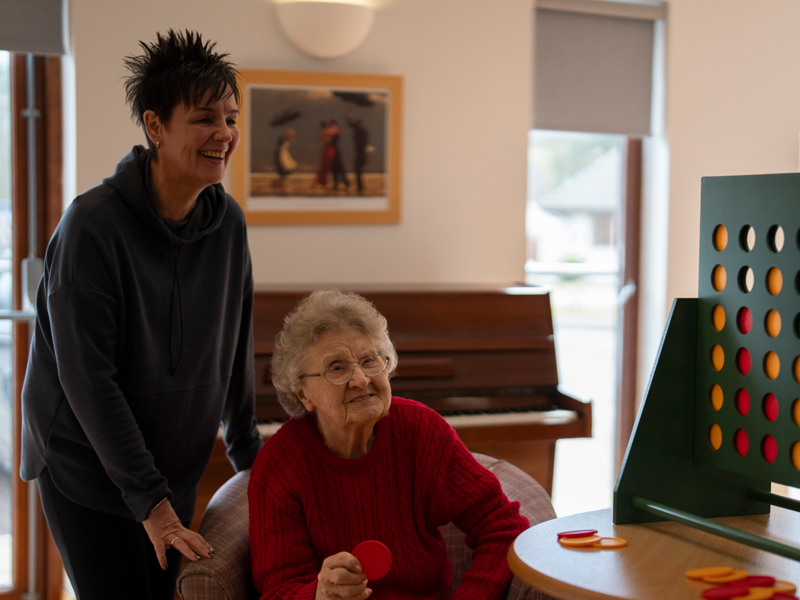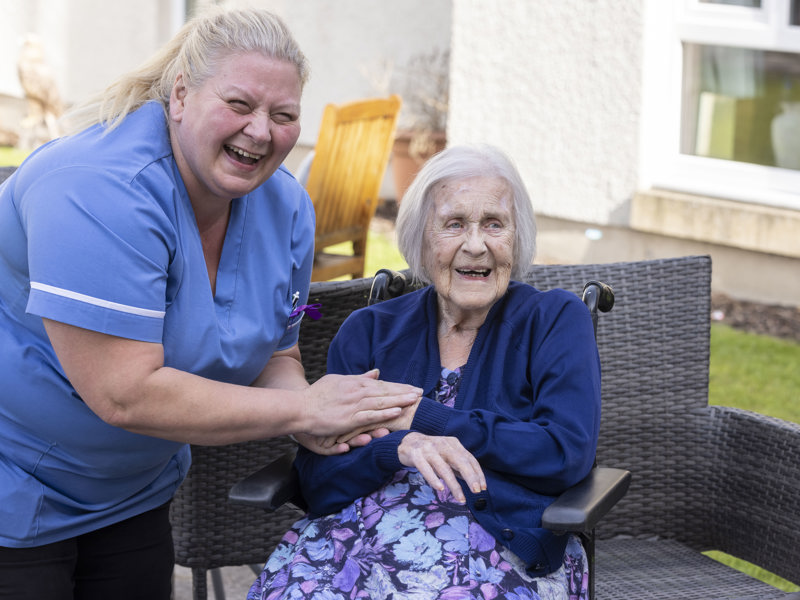It is a privilege to prepare and serve great quality food within our care homes, carefully selected with nutrition, flavour and individuality in mind for every resident.
To ensure we're positively impacting residents' physical and mental wellbeing, care home food should consistently provide variety, choice, and essential nutrition, with all dietary requirements and allergens catered for as standard.
Making sure we get it right for every person comes down to identifying and implementing personal care plans. To us, great care is a combination of all elements of care home life: varied food choices, lifestyle opportunities and quality clinical care.
What Food Is Served In A Care Home?
Food within care homes range from traditional favourites to cultural delights – it all depends on what our residents want.
Each home consults with residents to identify food choices that matter to them. Our seasonal menus have been carefully created based on nutritional value, resident choice, and chef’s delights. Meals are prepared within our in-house kitchens and are beautifully presented according to dietary requirements; for example, the same meal can be adapted so that it is suitable for those requiring finger foods or processed with skill and passion so that they meet the needs of any resident on a textured modified diet in order to accommodate individual needs and mitigate any risks.
We also carry out a ‘Meal or No Meal’ activity with residents and relatives to identify potential foods to add to our menus alongside staple favourites. We recently trialled haggis bon bons, salmon fishcakes, Pork Meatballs in a thai style sauce, mushroom cappuccino soup and the verdict was unanimous in its delight.
Hydration In Care
Hydration and fluid intake is an integral aspect of care for every resident within Renaissance Care. Good hydration in care homes has multiple benefits including a reduction in medication, reduction in falls, increase in energy level and mood, and improves the integrity of the skin.
As part of daily routines, water jugs and hydration stations are refreshed throughout the day offering a variety of hot and cold beverages for residents and visitors to enjoy. Particular consideration is given to the placement of refreshments to ensure they are within easy reach for those that experience mobility issues. A choice of cups or aids is also available to ensure water flow requirements meets residents needs.
Dehydration in Older Adults
Our staff are trained in hydration and how to notice signs of dehydration in older adults. Older adults become more susceptible to dehydration due to physiological changes as we age including renal function and cognitive impairment.
A diagnosis of dementia or implications from a stroke may impact the ability to recognise the feeling of thirst. Our staff often assist residents with drinks and make regular prompts to promote good hydration within our care homes.
We regularly include a choice of foods that have a high fluid level throughout the day to promote strong hydration levels including: jelly, ice-lollies, variety of fresh fruit, yoghurt, and custard. As always, any of these choices can be adapted to suit an individuals needs. Our food and drink offerings are enhanced through warmer months to combat the effects of the heat.
















